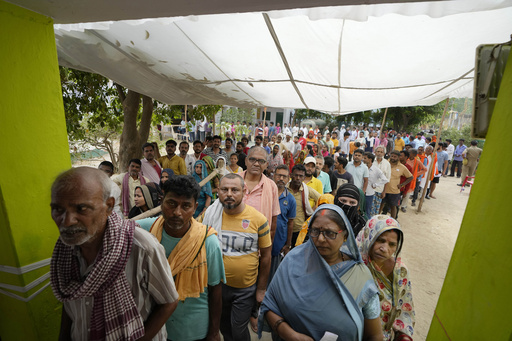NEW DELHI — A significant piece of legislation proposed by the government led by Prime Minister Narendra Modi aimed at altering India’s electoral system was rejected in the lower house of Parliament on Tuesday.
The law minister, Arjun Ram Meghwal, introduced the bill, which sought to allow simultaneous elections for state assemblies and the national parliament. However, the proposal did not secure the necessary two-thirds majority, garnering only 269 votes in favor compared to 198 against it.
The government contends that conducting simultaneous elections would lead to enhanced economic development and improve governance by decreasing the frequency and costs associated with election campaigns, thus allowing politicians to devote more time to their responsibilities.
Nevertheless, the opposition parties in India have voiced strong objections to the bill, which has been a topic of discussion for over a year. Detractors argue that the proposed system would erode federalism and risk transitioning India towards a presidential election format, potentially giving undue advantages to the ruling parties during state elections.
Home to over 1.4 billion residents, India comprises 28 states and eight federal territories. At present, elections for states and the national parliament are staggered, happening at different intervals throughout the country, with a number of state elections occurring almost annually.
The previous national election was conducted over 44 days in seven phases.
On Tuesday, Meghwal expressed the government’s willingness to refer the legislation to a parliamentary committee for more extensive discussions. According to the draft, should the legislation be enacted, it could take effect “the first sitting” of the lower house following a national election, indicating that its implementation would not be possible until after 2029 when the current government’s term concludes.
The Modi administration has consistently supported this electoral reform, setting up a nine-member committee last year to explore its viability. The committee endorsed the initiative in March, suggesting it would minimize the waste of public resources and potentially enhance voter turnout.
For the legislation to be enacted, it must gain approval from both houses of Parliament with a two-thirds majority in each. Additionally, experts highlight that the new electoral format would necessitate amendments to India’s Constitution and must receive ratification from all states and federal territories.
Unlike during its prior tenures, Modi’s Bharatiya Janata Party, which adheres to Hindu nationalist principles, currently does not hold a majority in the lower house of Parliament. Consequently, it relies on collaboration with allies from the National Democratic Alliance and other sympathetic parties to advance its legislative agenda.



